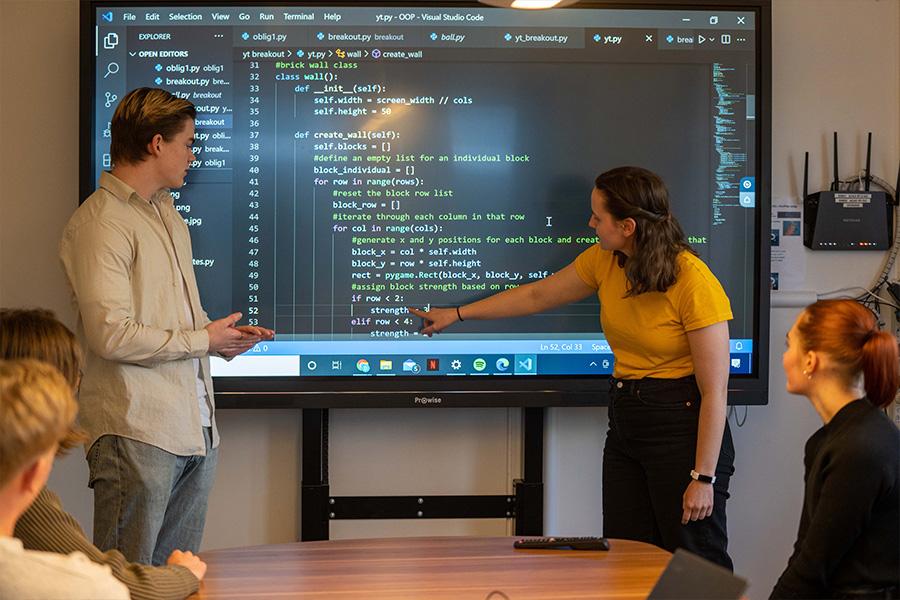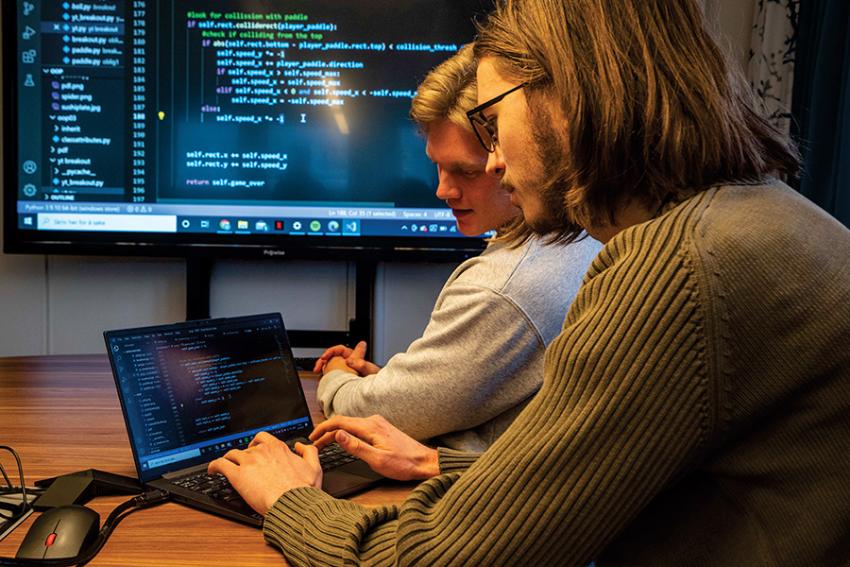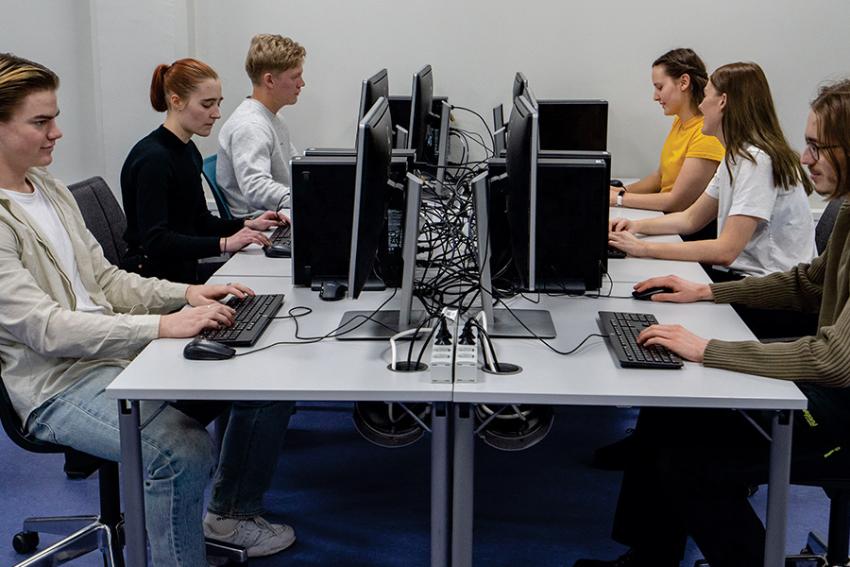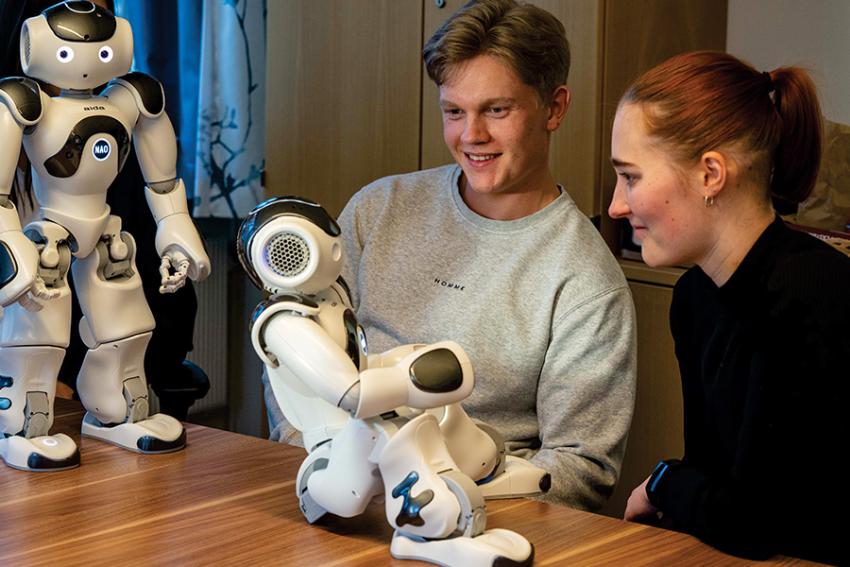Turn your passion for technology into impact with the Master’s in Computer Science. This program empowers you to solve real-world problems through innovative, cross-disciplinary collaboration. Whether you're into science, healthcare, or engineering, you'll develop smart, efficient solutions that benefit society and industry. Perfect for those who love programming, systems, and creating technology that matters.
Bachelor’s degree (180 ECTS) or equivalent qualification, with a major in Computer Science of minimum 80 ECTS.
Applicants must have a minimum grade average comparable to a Norwegian C (2,5) in the ECTS scale, see the UiT webpage for International admissions for more information on how the point average is calculated.
Applicants with education from non-Nordic countries must document English language proficiency. You will find more information on English language requirements on the UiT webpage for International admissions.
Admission capacity:
20 places
Applicants from Norway or Nordic countries:
Her finner du all informasjon knyttet til søking og opptak.
Applicants within EU/EEA/Switzerland (except the Nordic countries):
You will find more information about international admission here.
The program is not available to applicants from outside the Nordic countries and the EU / EEA / Switzerland (Non EU / EEA applicants).
- Nordic applicants: 4008
- EU / EEA / Switzerland applicants applicants: 7102
Program description
The program builds on skills in basic programming and database systems acquired through a bachelor’s degree (see admission requirements). It will provide you with a deeper and more detailed understanding on computer systems, software architecture and programming. Your master thesis towards the end of the program will allow you to develop a broader skillset within your chosen area of specialization.
This master’s program in Computer Science is unique in its very experimental approach with a lot of practical programming exercises and laboratory work. The computer science courses are taught by active researchers and professors and are directly connected to the on-going research projects carried out by the academic staff at the department.
Learning outcomes
Knowledge
The candidate has…
- a broad solid foundation in computer science
- considerable depth of understanding of a selected area of specialization
- a deep understanding on state of the art distributed and parallel software architectures
- a solid knowledge about risks and threats in computer systems and their related security measures
- a solid understanding of system and application development relevant to the chosen specialty
Skills
The candidate can…
- work independently on a significant non-trivial scientific problem
- analyze a problem and plan how to work towards a solution
- plan, organize and execute the work required to solve the problem.
- adapt to changes and limitations when solving the problem
- demonstrate the feasibility of the solution by implementing key parts
- collect and analyze relevant metrics characterizing the problem and the solution
- write a well-structured and clearly formulated report describing the thesis work and reflecting on its results
General competence
The candidate …
- can contribute to the continued development of computer science as a dynamic field under the influences of advances in the discipline, changes in technology, and in application areas, business models, and businesses.
- can communicate effectively, orally and in writing, within the field, and with the public as well as experts in other fields
- can pursue life-long learning and development
- understands relevant social and ethical issues and can apply this awareness to their professional conduct
- can contribute to new thinking and sustainable innovation processes
Job prospectives
Here’s a list of popular career paths in computer science:
- Software Developer – Build apps, websites, and systems.
- Data Scientist – Analyze data to find trends and make predictions.
- Cybersecurity Analyst – Protect systems from digital threats.
- Machine Learning Engineer – Create AI models that learn from data.
- Game Developer – Design and code video games.
- DevOps Engineer – Automate and streamline software deployment.
- Product Manager – Lead tech product development and strategy.
Degree Name
Master of Science in Computer ScienceAccess to further studies
Upon successful completion of the degree, and satisfactory grades, students may be qualified for admission to a PhD program in Science.
Related professions
Study plan
Language of instruction
The language of instruction is English and all of the syllabus material is in English. Examination questions will be given in English, but may be answered either in English or a Scandinavian language.
The Master's thesis may be written in either English or a Scandinavian language.
Teaching and assessment
The study programme offers a varied teaching programme while most courses are intensive and project oriented. In lectures, theory and academic theme are examined. In the group work, students are expected to be active in discussions of issues in the subject matter. Students work in laboratories where compulsory assignments are solved to acquire practical skills in designing, building and maintaining computer systems, either individually or in teams with other students.
There are several possibilities for exchanges abroad. The exchange period depends on your individual study plan, and should be planned in collaboration with the student advisor and the student’s supervisor.
Destinations for studies abroad
Other studies you may like
Vil du vite hvordan det er å være student ved UiT? Følg @uitstudent på Instagram eller TikTok, hvor studenter deler fra livet på universitetet. Her får du praktiske tips om studier og studentliv, nyttig informasjon om campus og muligheten til å stille spørsmål om alt du lurer på.
For mer informasjon om studietilbud, forskning og muligheter direkte fra UiT, kan du følge @uitnorgesarktiske på Instagram eller TikTok. Her finner du offisielle oppdateringer og innsikt i hva universitetet har å tilby.







